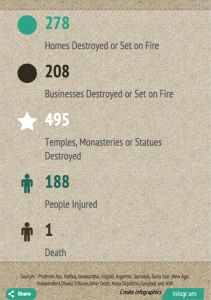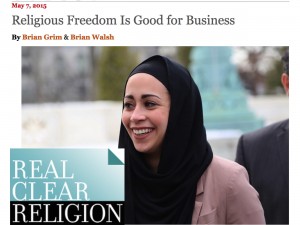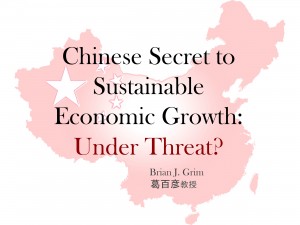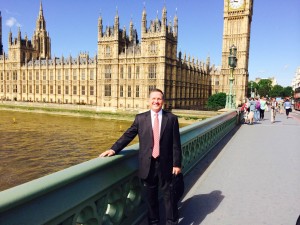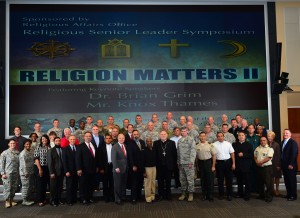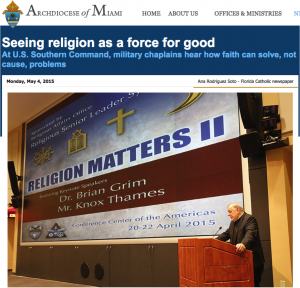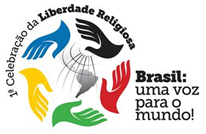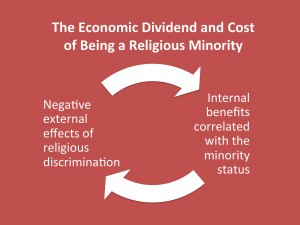 Summary: Germano Maifreda, from Milano University, finds that recent historiographies offer a new interpretative analysis of how the treatment of the Jewish community as a minority, especially in developing Europe, prepped the community not only for wider economic success in the mainstream, yet also had a positive but limited communal economic return. Maifreda finds that where an ethnic community is restricted through outside policy decisions, the community is able to adapt and create a fluid and productive market within its walls – which can breed further outside hostility towards its success. However, when offered the opportunity to join the mainstream, the security of this inside market is lost without guarantee of an immediate economic benefit.
Summary: Germano Maifreda, from Milano University, finds that recent historiographies offer a new interpretative analysis of how the treatment of the Jewish community as a minority, especially in developing Europe, prepped the community not only for wider economic success in the mainstream, yet also had a positive but limited communal economic return. Maifreda finds that where an ethnic community is restricted through outside policy decisions, the community is able to adapt and create a fluid and productive market within its walls – which can breed further outside hostility towards its success. However, when offered the opportunity to join the mainstream, the security of this inside market is lost without guarantee of an immediate economic benefit.
Today, historians study the ties existing between the status of religious minorities and the development of particular patterns of business behavior in past centuries. A number of studies have shown how religiously homogeneous groups, suffering various degrees of legal and social discrimination, also derived certain advantages from their status as a minority. The most important of these advantages consisted of their having access to the networks of ethnic solidarity and trust which a discriminated minority might enjoy, as well as to connections and resources which result from their being a part of a far-flung diaspora.
How should we view these ‘advantages’ inherent in the condition of discrimination? Studying them can help us in understanding the context of religious discrimination, both in the past and in the present.
RELIGIOUS DISCRIMINATION AS AN ‘ADVANTAGE’
As Roger Waldinger has written in his seminal studies, “ethnicity is a resource insofar as the social structures that connect members of an ethnic group to one another can be converted into business assets.” According to the Ellen Auster and Howard Aldrich’s thesis, moreover, ethnic solidarity provides greater generalized informal support for business than just a potential protected market of customers. As scholars have noticed, the most salient feature of early business efforts by immigrant groups was their dependence on an ethnic community for support. Support is provided at least on two levels: informal support from friends and relatives of aspiring business owners, and support from the larger networks of ethnic institutions, including religious associations, fraternal organizations and other small businesses.
LEARNING FROM JEWISH HISTORY
Throughout the modern world, the Jewish economic influence has often been exaggerated, both by anti-Semites and by philo-Semites educing material manifestations of Jewish ‘chosenness’. Yet, although the results of new research is, as Derek Penslar has written, “a minimizing of Jewish economic exceptionalism and a depiction of Jews as trading people,” we can not fail to note that “Jewish economic difference remained prominent in the Jewish self-consciousness”, and that “signs of Jewish economic uniqueness remain and demand explanation.”
A growing number of studies have shown that the economic history and behaviour of the Jews did not derive from some hypothetical anthropological ‘Jewish character,’ and had very little to do with internal developments in the Jewish moral code or religious ethics. Recent historiographies no longer considers the argument of legal restrictions on Jewish economic activities, if taken individually, to be a compelling explanation of the Jewish occupational structure during the ancient and medieval periods. Responding to the particular conditions in which both Gentile and Jews found themselves, Jewish business structures were the product of an elaboration on the part of both the Jews and the Gentiles to these conditions, serving internal end external ends, in a continuous interplay between Jewish and non-Jewish cultures, societies, and institutions.
TOWARDS A MODEL OF BUSINESS BEHAVIOR
This historical construction of Jewish business behavioral patterns are usefully expressed in a simplified circular model describing the interaction between the negative external effects of specialized policies of religious discrimination in relation to the correlating internal benefits developed by the restricted minority group.
Among the key measures and policies of religious discrimination introduced in Europe between the Middle Ages and the early modern age are the laws forbidding Jews to own land or practice certain professions and businesses; the various forms of comparatively excessive taxation on Jewish communities and individuals; the means of expulsion, deportation or forced living in ghettos; the various limitations on geographical and social mobility; and all other laws and policies whose primary or secondary goal was the economic discrimination against the Jewish population.
With the reality of a Jewish dispersion, the community maintained an ethnic solidarity, social cohesion, and commercial institutions, which consistently favored mobility over a wider area and, with it, the geographic extension of kinship ties. In turn, this contributed to the internationalization of Jewish business relations and international mobility, favoring the activities for which those features had a competitive advantage, such as large-scale trading and international bank lending.
ROME IN THE RENAISSANCE
Typical benefits of ethnic enclaves, such as residential segregation or concentrated living, took place in Renaissance Italy: here the Jews, from the mid-XVIth century to the French Revolution, were largely forced to live in ghettos. The papal decrees marked a turning point in the hostile economic and social policy of the peninsular states towards the Israelites, forcing them and their business activities to be concentrated in ghettos. This fact, while economically discriminatory towards the Jews – re-enforcing stereotypes of differentiation, increased their communities’ reliance and consumption of their own business ventures, and this internalized market benefit was accessible almost exclusively to Jewish traders. The economic benefits resulting from the ethnic specialization of the Jewish market, combined with the hostility of Christian competitors (alongside the discriminatory representations of those benefits generated by the Christian majority), inevitably led the oppressors to develop new forms of exploitation and differentiation. Thus, increasing the size of the loyality within the ethnic group and continued institutional discrimination itself.
ABOUT A VICIOUS CIRCLE
Religious discrimination enhances ethnic identity. Ethnicity may result in business advantages. These benefits may strengthen religious discrimination – both because they are seen with envy by the majority, and because they represent a material advantage for the members of the minority. It’s important that those wishing to work towards religious freedom are aware of this vicious cycle, especially those with a business focus, or doing business in areas that are strongly characterized by ethnic factors. Under certain conditions, the same discriminated individuals will not have an incentive to abandon the condition of discrimination. As, they would lose the economic advantages of being part of the minority, without immediately acquiring the benefits of the mainstream economy.
Germano Maifreda
University of Milan
References:
Auster, H. Aldrich, ‘Small business vulnerability, ethnic enclaves and ethnic enterprise’, in R. Ward, R. Jenkins (eds), Ethnic Communities in Business. Strategies for the Economic Survival (Cambridge Mass.: Cambridge University Press, 1984), pp. 39–55.
Penslar, ‘Foreword’ in G. Reuveni, S. Wobick-Segev (eds), The Economy in Jewish History: New Perspectives on the Interrelationship between Ethnicity and Economic Life (New York-Oxford: Berghahn Books, 2010), pp. vii–x.
Waldinger, ‘Immigrant enterprise in the United States’, in S. Zukin and P. Di Maggio (eds), Structures of Capital. The Social Organization of the Economy (Cambridge Mass: Cambridge University Press, 1990), pp. 395–424.

